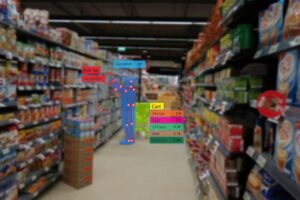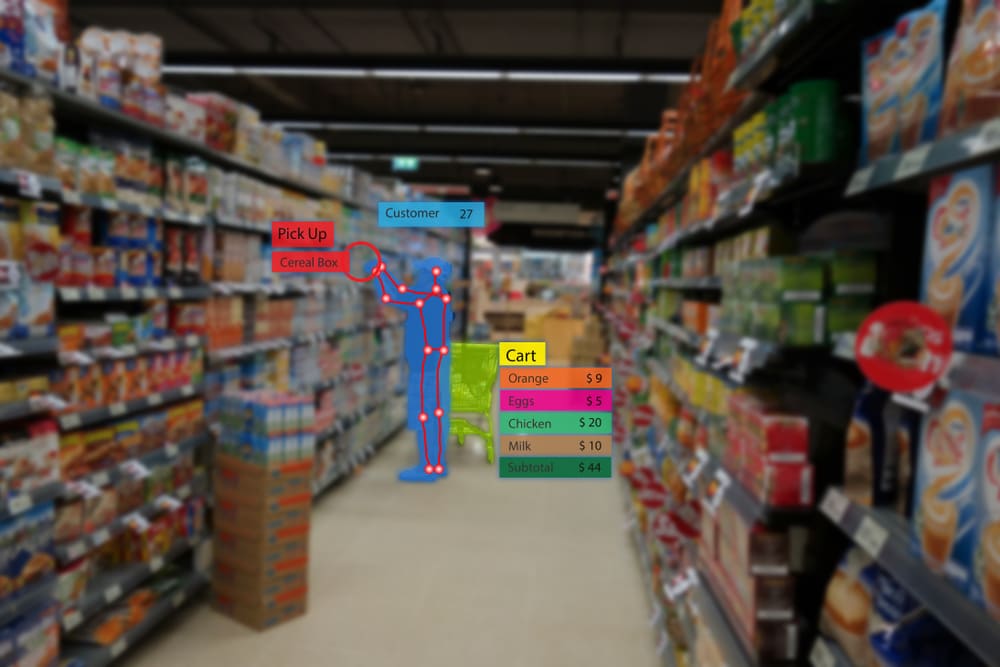Beacon mobile marketing debuted in 2013 when Apple announced iBeacon technology would be part of their iOS 7 software at the World Wide Developer Conference. They offered a retail solution evolved from earlier GPS mapping and push notification systems. But in comparison to the 46-meter indoor range of GPS or WiFi, beacons offered a considerable improvement of 450 meters. Beacons were designed as an affordable, energy-efficient way for retailers to communicate with mobile shoppers and collect data about how they navigate stores.
By December of that year, Apple equipped all their stores with beacon technology to provide customers with helpful, relevant in-store notifications. A year later, Macy’s followed suit. Today, there are some 400 million beacons deployed around the world, though many retailers are still learning how to maximize proximity marketing’s benefits.
Consider these compelling, research-backed reasons to use beacons in your in-store marketing strategy:
- Boost Awareness: Campaigns using beacons have seen a 36%+ lift in awareness.
- Grow Sales: Retailers can increase profits by 9% and obtain a 175% ROI with beacons.
- Foster Engagement: Push notification open rates of 14% pale in comparison to beacon-transmitted messages which have a 53% open rate.
- Increase Conversion: One study showed that over 70% of shoppers were more likely to purchase with a beacon offer.
- Strengthen Brand Affinity: The same study found that 60% of shoppers would choose stores with mobile offers (and visit more often).
- Collect Data: 7 in 10 brands use beacons to understand shopper purchase decisions.
The need for omnichannel beacon technology has only continued to grow over the years. The gap between online and offline channels continues to close, with 6 in 10 shoppers using their mobile devices while in-store. Furthermore, beacons help brands tailor recommendations directly to individual consumers, which falls in line with trending data collection and one-to-one personalization.
What Is Beacon Mobile Marketing?
Each beacon device contains a central processing unit (CPU), radio, batteries, and a unique identifier for broadcasting. These small, wireless transmitters use low-energy Bluetooth technology to send signals to nearby smart devices. Once a connection occurs, the beacon will carry out its pre-programmed function, whether it’s to drive foot traffic to the store with a special offer, welcome shoppers and help them navigate the aisles, or collect data on a person’s interests.
Two major advantages of beacon mobile marketing are its ability to increase awareness and boost sales.
How to Use Beacon Mobile Marketing to Increase Awareness
Beacon technology can drive awareness around particular brands, sales, and events, or can be used to keep your retail location top-of-mind—particularly when smartphone users are nearby your store.
 Some key advantages to using beacon mobile marketing include:
Some key advantages to using beacon mobile marketing include:
- Attracting Foot Traffic: Macy’s used a beacon-powered mobile game to successfully drive foot traffic and engagement during the holiday shopping season. Shoppers would be sent a notification if they were within a designated range of a Macy’s store, encouraging them to enter the store and participate in the game.
- Offering Cross Promotions: MLB stadiums and NBA arenas use beacon marketing for cross-promotion by targeting shoppers as they are waiting in line or strolling near key merchandising areas. After the Orlando Magic set up beacons offering food and retail deals, expedited entry, and smartphone ticket access, they saw a $1 million increase in ticket sales, with 80% selling via the app.
- Delivering In-Store Rewards: When Barilla needed a way to stay top-of-mind in-store and drive awareness of a new product, they partnered with Shopkick. Upon arriving at Target, Walmart, and other national grocers, Shopkick app users were greeted with a video ad for Barilla’s new pasta product, which was triggered by beacon technology. The video created awareness around the new product, educated shoppers on its unique qualities, and then encouraged users to seek out the product in-store. Shopkick then led users to the product in-aisle and encouraged physical engagement by rewarding them for scanning the product’s barcode. The end result was a 50% conversion rate, a 66% increase in brand awareness, and a 68% lift in future purchase intent.
How to Use Beacon Mobile Marketing to Boost Sales
Beacons often lead to increases in sales in many ways—whether it’s using them to directly message consumers at crucial decision-making moments or collecting raw data that proves helpful to merchandising and placement strategy.
- Capture Data That Matters: Alex & Ani used beacon technology to optimize their store layout and enhance product placement, all without sending a single promotion. Instead, they used beacons to collect valuable customer data which they then used to make strategy-related decisions regarding their store, products, and notifications. With their optimization efforts, 30% of customers who viewed their digital beacon notifications ended up visiting the store.
- Cut Through Overcrowded Aisles: With dozens of makeup brands to choose from, it can be difficult to reach consumers through the clutter to drive trial, consideration, and sales. Rimmel London leveraged Shopkick’s beacon technology and proximity messaging to drive trial and purchase. Upon entering the store, users were greeted by name via beacon technology, and were reminded to seek out the featured Rimmel products in-aisle to earn kick rewards for scanning or making a purchase. By keeping the brand top of mind immediately upon entry, Shopkick helped Rimmel steal a 14% share from competitors, and ultimately delivered a 5:1 ROI. The campaign was also successful in driving incremental purchases, as 38% of shoppers who made a purchase were first-time Rimmel users.
- Attract Loyal Shoppers: Shoppers are willing to share information with companies that understand them, and are more likely to conduct repeat business with brands that cater to them. Popular reward programs use beacons to consolidate data from online and offline shopping trips for a better user experience overall. The top 100 U.S. retailers attribute $44 billion in sales to beacon technology —a statistic that is too impressive to ignore.
Beacon mobile marketing is constantly evolving and even branching off into many related segments—near field communication (NFC), internet of things (IoT), and proximity marketing, to name a few. With no signs of waning and the exploration of new applications for beacon technology (such as their use as a low-cost way to offer mobile payments), incorporating this proven technology into a comprehensive marketing retail strategy can drastically improve both brand awareness and sales.
Eager to learn how you can incorporate beacon mobile marketing into your retail strategy? Shopkick is a mobile rewards app that uses beacons to welcome visitors in-store, as well as encourage interaction with partnering brands and retailers. Check out the latest success stories and contact us to get started on a campaign that can increase brand awareness and sales.
Image courtesy of MONOPOLY919





